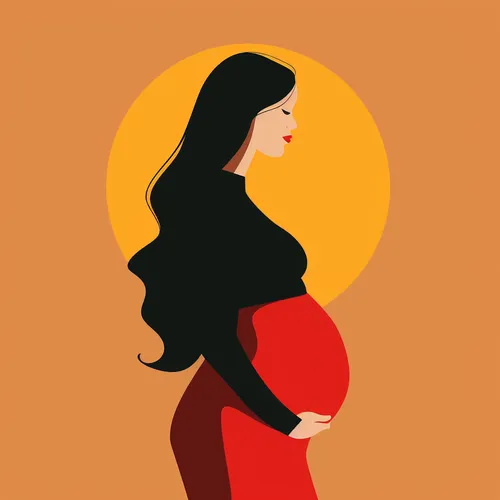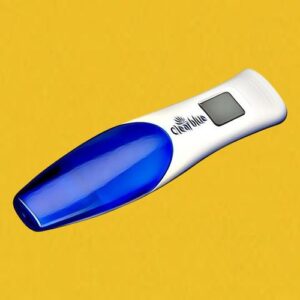Can Prenatal Vitamins Help You Get Pregnant?
Adding to your family is an exciting event for any couple, but it can be stressful if months or even years roll by with no baby. Sometimes all it takes is time, but getting pregnant faster is often top of the list for would-be parents. If you’re hoping to add a little one to your life as quickly as possible, you know eating healthy and getting exercise is a good start, but what about those prenatal vitamins? Can taking them before you get pregnant help improve your fertility?
The answer is a resounding yes. Major health associations such as the Centers for Disease Control and Prevention (CDC) as well as many more all recommend the same thing—that you spend at least 3 months preparing your body for pregnancy before actually becoming pregnant. This includes taking those prenatals, and for a host of excellent reasons.
Prenatal vitamins can give you all the nutrition you need to get your reproductive system into tip top shape. Even the healthiest of diets can sometimes fall short of some crucial ingredients required for a healthy baby, and if you do get pregnant, some of these vitamins are essential before you’re even aware of the baby. These include:
Folic Acid
Folate is crucial to fertility. High folate levels in men are associated with high levels of sperm as well, and folate is also needed to make quality eggs. High quality sperm and eggs increase the chance of getting pregnant, and the health of the baby as well.It’s also critical in the first few days a baby is forming to create healthy neural tubes. Neural tube defects are associated with a variety of birth defects, including spina bifida. Often by the time you miss your period and realise that you are pregnant, the neural tubes are already formed. Starting prenatals before you are pregnant insures your baby is getting an adequate amount of this vital nutrient.
Vitamin D
If you live in a sunny area, you might get enough vitamin D on your own, but many people aren’t quite so lucky. In areas such as the Pacific Northwest, cloudy whether can prevent even the most outdoorsy people from getting adequate vitamin D. Combine this with our more indoor lifestyles and many people are chronically deficient.While studies are limited on how Vitamin D supports fertility, a study conducted on white women found that those who had higher levels of vitamin D were four times more likely to get pregnant during fertility treatments than those who didn’t. While studies are still continuing, it never hurts to take Vitamin D now in case it helps.
Iron
In another study, scientists found that women who took iron supplements were significantly less likely to have infertility issues related to ovulation than those who didn’t. Even if you’re not worried about this particular infertility issue, taking iron when you’re planning to get pregnant is a sensible step. Your body’s demand for iron will greatly increase when you become pregnant, and having adequate stores can help you feel healthier during pregnancy.
All-In-One Prenatal Vitamins
There are some great “one-a-day” type vitamins on the market, designed to be taken when you are setting out to get pregnant. For women, we always recommend Seven Seas Trying For A Baby Vitamins or Pregnacare Conception. For men, the number one choice is always Wellman Conception. Make sure that you read our Seven Seas Trying For A Baby review before buying. Also check out our blog post, how Pregnacare Conception can help you get pregnant.
Taking prenatal vitamins is a great step toward achieving pregnancy, and yes it may help you get pregnant faster.
Other Nutrients To Consider When Trying To Conceive
In addition to the key nutrients already discussed, there are some other vitamins and minerals that are beneficial when trying to get pregnant:
Zinc – This mineral is necessary for fertility and conception in both men and women. Zinc is needed for sperm production and development in men. In women, zinc deficiency can lead to menstrual irregularities and ovulation problems. Food sources include oysters, meat, poultry, beans, nuts and seeds. Many prenatal vitamins contain zinc.
Magnesium – Magnesium supports hundreds of enzymatic reactions in the body and is needed for energy production. It may help regulate hormones related to conception. Magnesium rich foods include dark leafy greens, nuts, seeds, fish, beans and whole grains. Consider taking a magnesium supplement or eating more magnesium-rich foods.
Vitamin C – This vitamin improves hormone levels and increases fertility in women with luteal phase defect. It also helps the body absorb iron more effectively. Citrus fruits, red peppers, broccoli and strawberries are good sources of vitamin C.
Vitamin E – Vitamin E improves sperm health parameters in men and endometrial thickness in women. It acts as an antioxidant to protect sperm and egg DNA integrity. Vitamin E rich foods include nuts, seeds, spinach, broccoli and tomato.
CoQ10 – Coenzyme Q10 enhances sperm motility and may improve egg quality in women. Supplementing with CoQ10 has been shown to benefit couples undergoing IVF treatment. CoQ10 occurs naturally in meat and fish.
Omega-3s – Omega-3 fatty acids like DHA support hormone balance and regulate inflammation. For men, they enhance sperm count and motility. For women, omega-3s improve ovulation and menstrual cycle regularity. Fatty fish, walnuts, chia seeds and flaxseeds are good sources.
Antioxidants – Antioxidants like vitamin C, vitamin E, selenium and lycopene protect sperm and egg DNA from damage. Eating plenty of colourful fruits and vegetables high in antioxidants is recommended.
Probiotics – Probiotics support digestive and immune system health. They may help regulate menstrual cycles and increase conception chances. Fermented foods like yogurt, kefir, sauerkraut and kimchi contain probiotics. Consider taking a probiotic supplement when trying to conceive.
Lifestyle Factors That Impact Fertility
Taking a prenatal vitamin is just one piece of the fertility puzzle. There are many lifestyle factors that affect your chances of getting pregnant. Here are some tips for optimising fertility through lifestyle:
- Maintain a healthy weight. Being underweight, overweight or obese can negatively impact hormone balance and ovulation. Aim for a BMI in the healthy range.
- Exercise regularly. Moderate exercise improves circulation, balances hormones and relieves stress. But don’t overdo it, as excessive exercise can disrupt ovulation.
- Reduce stress. High levels of stress can interfere with ovulation and sperm health. Practice relaxation techniques like yoga, meditation and deep breathing. Make time for self-care.
- Limit caffeine. Consuming more than 300mg of caffeine per day may make it harder to conceive. Cut back on coffee, tea, soda and energy drinks.
- Avoid smoking and secondhand smoke. Smoking damages eggs and sperm and decreases fertility. Exposure to secondhand smoke may also lower fertility.
- Limit alcohol. Heavy drinking can cause infertility in both men and women. It’s best to avoid alcohol when trying to conceive.
- Be wary of environmental toxins. Avoid exposure to chemicals, plastics, pesticides and other toxins that may disrupt hormones and fertility.
- Get adequate sleep. Lack of sleep can negatively impact reproductive hormone balance. Aim for 7-9 hours per night minimum.
Making positive lifestyle changes gives you the best chances of getting pregnant faster. Be patient and keep trying – it may take 6 months to a year to conceive, even when doing everything right. Stay hopeful!
Timing Is Everything
When trying to conceive, it’s important to have intercourse during your fertile window – the few days leading up to and including ovulation. Ovulation typically occurs about 14 days before the start of your next period. You can use ovulation predictor kits or track your basal body temperature to pinpoint your most fertile days. Having sex every other day during this time frame maximises your chances of getting pregnant.
The Role Of Age In Fertility
Age is one of the most significant factors impacting a woman’s fertility. A woman’s egg quality and quantity naturally decline with age, especially after 35. This doesn’t mean getting pregnant is impossible in your late 30s or 40s, but it may take longer. If you’re over 35 and have been trying to conceive for 6 months without success, consult with a fertility specialist. They can run tests and recommend treatments to help you conceive. Men’s fertility also declines with age, but more gradually. Making healthy lifestyle choices can help preserve your fertility potential longer.
Photo credit; “Happy & Pregnant” by Anthony Cunningham for Zoom Baby
Zoom Baby is a leading supplier of Pregnancy Tests and Ovulation Test Kits





